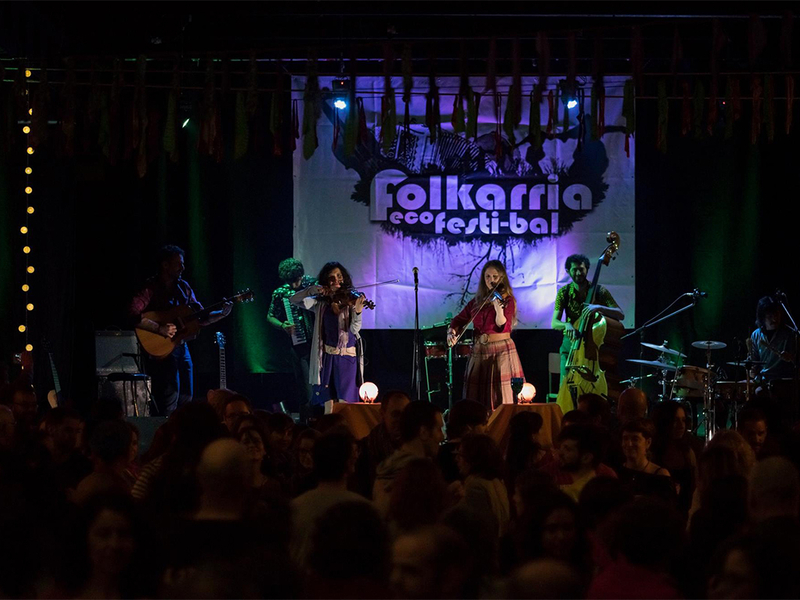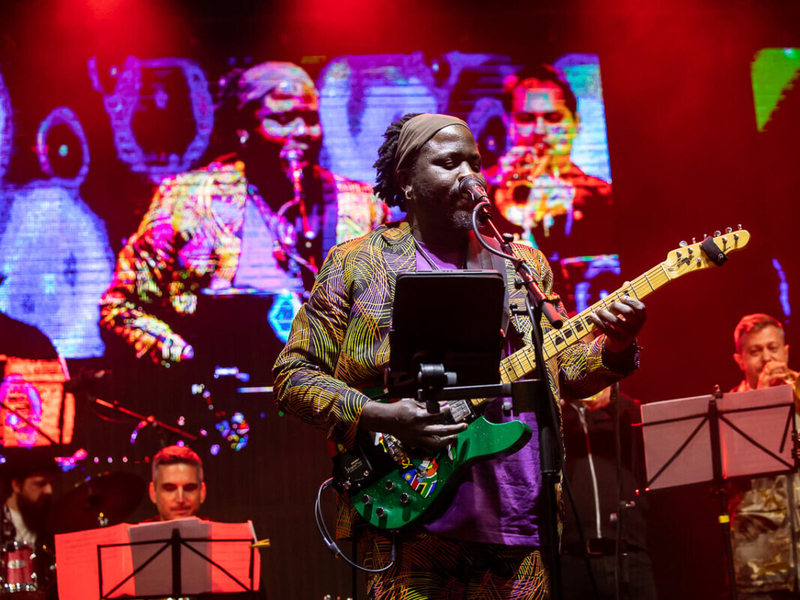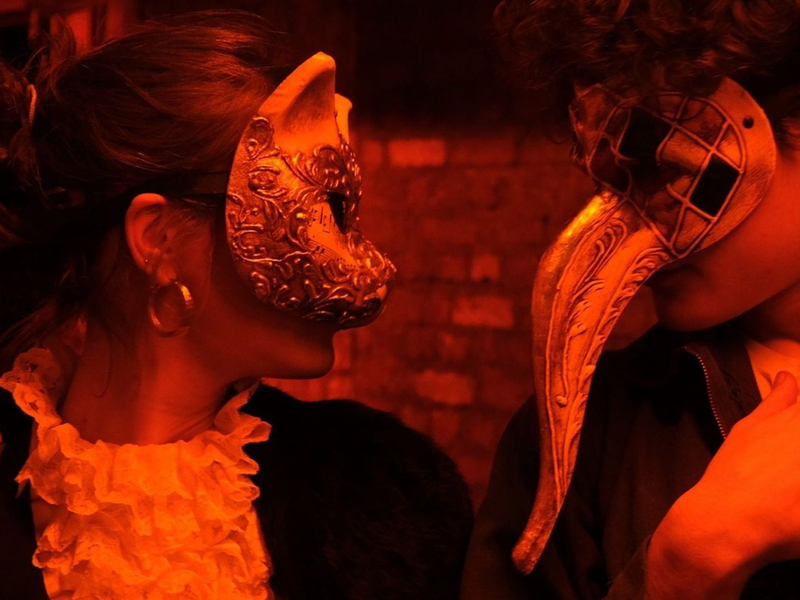Festival KHAMORO - EFFE Laureate
Simon Mundy's interview with Festival Director Jelena Silajdžić
For a week in May Prague is host to the sights and sounds of Roma culture. An event that started small 21 years ago has become, it claims, Europe's largest gathering of the Roma arts in all their vibrancy, both traditional and contemporary. The festival was not a spontaneous gathering of wandering people from Central Europe, it was the response of a pair of impressarios to a gratuitous act of prejudice.

'My husband and I are not Roma, we are Bosnian and we fled from Sarajevo in 1992 when the brutality was at its worst,' Jelena Silajdzic told me. 'I'm a film producer and my husband is a musician so when we came to Prague we did what we knew best and began producing events.' Seven years later they were producing a concert by a Roma band. When the musicians started to play the engineers deliberately sabotaged the sound. 'We were so angry,' says Jelena. 'We were refugees and we knew what it felt like to be rejected for no reason. We left our country because of nationalist fascism and yet here in the Czech Republic we were finding the same intolerance. We thought the best way to counter that was to start the festival – to celebrate Roma art, not suppress it.'
Jelena points out that because the Roma are a nation without a territory defined by borders they always leave an influence on the settled cultures they come into contact with. 'From Russia to South America there is always an element in the rhythm, a step in the dance.' Modern Western Europe does not know it so well, she says, mainly being familiar with the sounds of Gypsy jazz, like the playing of Django Reinhardt. She wanted to show how much more there is in the culture.
'We started in a small space, perhaps for 300, and no Roma people came.' Gradually the ratio improved step by step as the scope of the festival broadened. 'Now it's about 10.000 over the week and the audience is about half and half, though the non-Roma still tend to come to the jazz concerts first.' There are about 300 performers, mostly from seven countries – Spain, Romania, Hungary, Russia, Czech Republic, Serbia and Slovakia – but increasingly the net is widening. 'We've had artists from India, Egypt, Finland, the US and Brazil too.'
She sees it as essential that the festival is not just about traditional Roma music. 'It's about meeting, talking, eating, discussing watching films, seeing the visual arts.' She says there are tensions between the generations, as in every culture, and they need to be explored – as well as how Roma life can fit into European life today as nationalism increases. 'We have an open stage for young Roma artists to really explore how they are merging their culture with contemporary arts and moving Roma culture on. We really always want to fight against the stereotypes.'
Note from the EFFE International Jury
This festival describes itself as the world's largest of Roma music and takes place in Prague. At a time when Roma people are under pressure throughout Europe this is a festival we regard as important to highlight.
More information:
Festival KHAMORO
26 May 2019 - 01 Jun 2019 - Prague, Czechia


